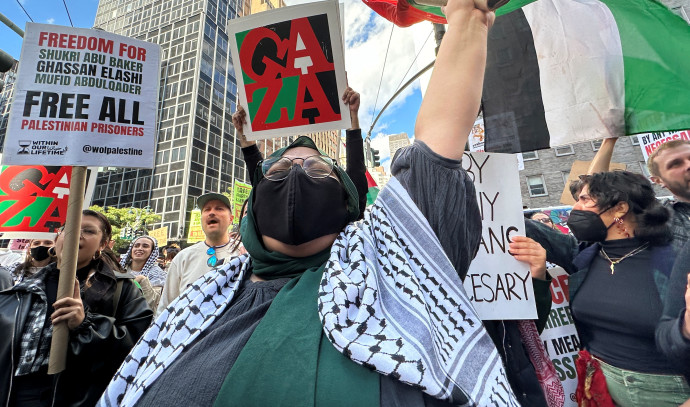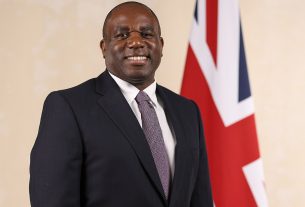A new poll reveals that American support for Israel is currently rock solid, but weaker support for Israel in the youngest age group creates questions about the future.
The results of the survey were published in the October Harvard CAPS / Harris poll. It was conducted online among 2,116 registered US voters on October 18 and 19.
Per the findings, 26% percent of the youngest age group surveyed (18-24) believes the solution to the Israel-Palestinian conflict is for Israel to be “ended and given to Hamas and the Palestinians.” Additionally, nearly three in ten of the youngest age group said that the US should back Hamas in the conflict.
American perceptions of Israel and its leadership
Prime Minister Netanyahu had a moderately high net favorability among respondents at 38%, polling lower than figures such as Donald Trump, Joe Biden, Hilary Clinton, and Nikki Haley, but higher than figures including Vivek Ramaswamy, Ilhan Omar, Rashida Tlaib, and Mahmoud Abbas.
Israel as an institution had very high net favorability, at 59%, coming in third place behind the US military and the police. It beat out institutions including the FBI, Ukraine, CNN, FOX, and Black Lives Matter. Hamas, which had the lowest net favorability, still garnered 13%.
What Americans think about the current Israel-Hamas conflict
While the overall attitude among Americans polled was strongly strongly in support of Israel, there were dramatic differences among the age groups polled. Those aged 18-24 years old, registered the highest level of anti-Israel, pro-Palestinian, and pro-Hamas sentiment.
A global survey commissioned by the Open Society Foundations in September of this year demonstrated similar gaps in generational attitudes. This earlier survey found that among 18-35-year-olds, over a third believed that having a leader who does not bother with a parliament or elections is a good way of running a country.
Of this same age group, 42% said that army rule is a good way of running a country.
In the Harvard CAPS / Harris poll, an overwhelming proportion, 86%, believe Hamas’s attack on Israel was a terrorist attack. That figure rises to 91% among those who say they have been following the conflict closely. The 18-24-year-old demographic was the least likely to say it was following the conflict closely.
The generational differences in perception of the conflict were dramatic.
Overall, 84% of respondents said they side with Israel over Hamas. This figure drops to 52% among 18-24 yr olds
This trend of generational differences was almost universally consistent across all the questions asked about the conflict.
Younger people were less likely to label Hamas as “terrorists,” more likely to side with Hamas over Israel (48%), less likely to say Israel has a responsibility to protect its citizens by retaliating against Hamas, less likely to say Israel has a responsibility to bring back abducted citizens, more likely to moral believe there is moral equivalency between Israel and Hamas, and less likely to say Israel is justified in eliminating the Hamas government.
In addition to perceptional and moral differences between the generations, the younger generation was more susceptible to misinformation.
For instance, roughly three-quarters (74%) of the total pool of respondents said Hamas’s attack indiscriminately targeted civilians. Only just over half (53%) of the youngest demographic said the same.
Younger respondents were also less likely to believe Hamas killed, raped, and beheaded 1200 Israeli civilians (the publicly available figure at the time the poll was conducted) on October 7, 2023. They were more likely to believe it was Israel, and not a misfired Gazan rocket, that struck the area of the Al-Ahli hospital. Relatedly, the youngest demographic polled was just as likely as the average respondent to say that prejudice against Muslims in the US is on the rise.
What the US public thinks of the Biden administration’s response to the Israel-Hamas conflict
A net 58% of respondents approved of Biden’s Israel policy and 65% approved of Israel’s decision (made at Biden’s urging), to provide food and water to Gaza even while hostages are held, this figure dropped to 53% among younger people.
This was a notable statistic considering that the 18-24 demographic otherwise showed a strong affinity for the Gazan people.
The poll also noted that Biden’s approval rating has gone up to 44% since the outset of the Israel-Hamas war.
The leading polling website, 538, however, painted a different picture. Based on its findings, Biden is polling at 40.7%, representing no significant change in the president’s popularity since June of this year.



